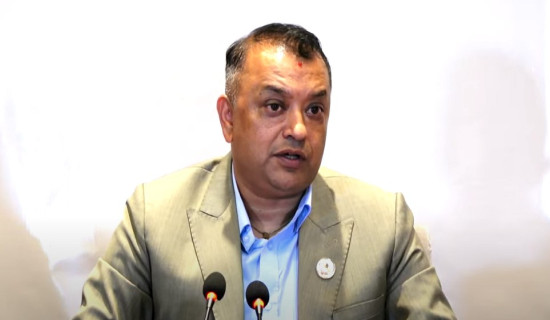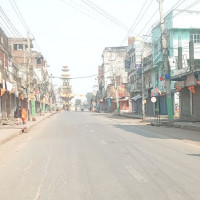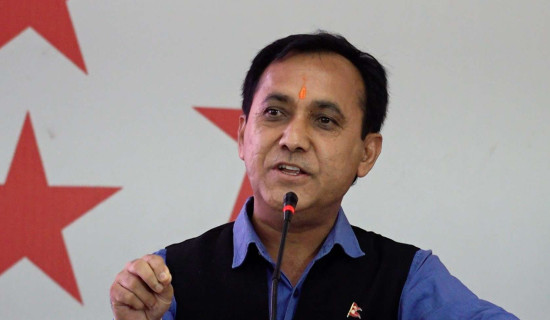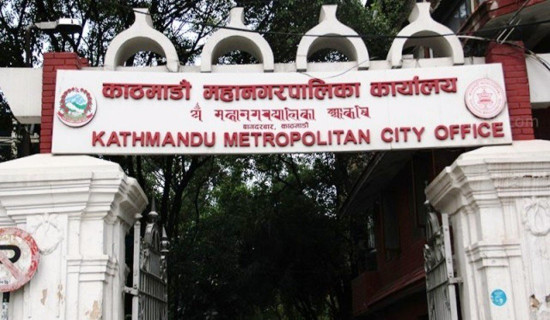- Monday, 23 February 2026
Quiet, persistent and determined efforts should bring about enduring results. And New Delhi can play a major role in rolling back the SAARC into meaningful action.
Let me cite The Rising Nepal’s masthead motto proclaimed so prominently: All be happy, all be well. When Pakistan’s ambassador to Nepal, Abrar H. Hashmi, called on him on Tuesday, Prime Minister KP Oli reiterated Nepal’s emphasis on the constructive role the eight member-states of the South Asian Association for Regional Cooperation (SAARC) can contribute to reactivate the world’s most-populous but developing region.
On the occasion, Ambassador Hashmi predictably conveyed that Pakistan was ready to host the regional summit, while also dwelling upon the prospects of increased bilateral cooperation with Nepal on various issues and areas. Although the broad areas in which mutual cooperation could benefit both the countries were dwelt upon during the meeting, the thrust on the long-impending SAARC summit was clearly a highlight. The statement issued by the PM’s Office seems to suggest so.
Formally launched on December 8, 2024, SAARC completes 40 years next December. But the grouping, which represents a fifth of humanity, is conspicuous by its state of stalemate. The 19th summit, originally scheduled to be held in Islamabad in 2016, was abruptly cancelled when India decided to boycott it. Bangladesh, Bhutan and Afghanistan, sent notices to the hosts about their decisions not to attend the top-level regional gathering. A terrorist attack on an army camp at Uri in the disputed region of Kashmir triggered the drastic decision.
Islamabad strongly denied New Delhi’s accusation of engineering the attack. In any case, the earlier collective commitment to holding summits at least every two years have not been complied with echoing the deep differences in member states.
Loss for all
Nepal thus has the inconvenient — rather not so easy task of chairing the grouping for a record-long period of 10 years without any immediate sight of the long-stalled Islamabad summit date. How long is the non-summit going to last? Nepal has regularly reiterated its keen interest in giving the required impetus to the SAARC process. Since its inception, SAARC, originally comprising seven countries before the addition of Afghanistan in 2005, has failed to make expected progress, largely due to the rivalry between India and Pakistan.
Some non-South Asian powers might be keenly looking for openings to fish in the troubled SAARC waters at a time when the world witnesses the not-so-slow but sure process of a new order in the making. Any vacuum created by a less than active SAARC would give an added impetus to big power rivals to push their agendas, whatever the consequences for South Asians in general.
It is no secret that the running Indo-Pakistani feud has created a cold war that has adversely affected the prospects of consensus on any meaningful achievement for a full decade. India’s initiative in creating the Bay of Bengal Initiative for Multi-Sectoral Technical and Economic Cooperation (BIMSTEC), too, is having a rough ride. With India, Bangladesh, Bhutan Myanmar, Nepal, Sri Lanka and Thailand as its members. Thailand decided to postpone the hosting of the 6th BIMSTC summit that was scheduled for September.
BIMSTEC’s creation was seen by some analysts as an attempt at sidelining Pakistan from South Asian mainstream. A review on this might be in order against the background of its scope, reach and potential matching neither SAARC’s nor China’s larger Belt and Road initiative. India, which nurses the hope of securing a permanent seat at UN Security Council, has also focused on Bangladesh, Bhutan, India and Nepal (BBIN), consisting of Bangladesh, Bhutan, India and Nepal, in an approach that excludes Pakistan.
SAARC is all the more relevant today, given the aggressive manner in which nationalist stance and regional strategies are being coordinated and espoused directly or in semi-disguises. The protracted delay in summit meeting puts a brake on its prospects of accelerated pace. However, all is not lost. Despite running bilateral tensions over border dispute, India and Pakistan have attended SAARC’s Council of Ministers’ meetings, which have helped keep the organisation breathing.
At the time of its launch in Bangladesh’s capital decades ago, development experts and economists had compared SAARC’s economic prospects with those of the Association of South-East Asian Nations (ASEAN) and the European Union (EU). In an emerging multipolar world, the need and significance of regional organisations should gear SAARC members to infuse a sense of urgency for the much-needed boost to South Asian desire for collective economic self-reliance.
Its success would lead to greater bilateral understanding, expanding the range of cooperation and demonstrating South Asians do not engage in debilitating conflicts and but in mutually beneficial endeavours that could be emulated by other developing regions, too.
Public first
No one denies that leaders and governments have to level with the public. Defined as independent, conscientious and bias-free view of consistently credible section of society, public opinion is the life blood of a successful democratic governance. South Asians without any exception have many strides to take for an average quality of life that advanced economies in democratic systems recorded several decades ago. Inequalities in different forms and at various levels of social units are persisting issues begging to be addressed.
Coping with the long-festering challenges is an onerous but by no means an impossible task. Dwelling upon them with meticulous planning and unflinching dedication should steer a nation on an even keel. South Asia today has definitive potential for gaining fast strides in development that visibly reflect on the living standards of an average individual. Collective efforts, based on firm commitment and supported by equally appropriate and unwavering action can fetch the designed outcomes. SAARC, when reactivated in real earnest, will deliver the goods that have eluded the member states.
As such, Prime Minister Oli’s renewed emphasis on setting the regional organisation on a befitting track and speed for the collective good of a region that hosts the single-largest concentration of poverty-stricken people should nudge all concerned at all levels to undertake the necessary without any more delay.
This can be attained with the collective efforts of all without any hint of one upmanship among member states. Quiet, persistent and determined efforts should bring about enduring results. And New Delhi can play a major role in rolling back the SAARC into meaningful action.
(Professor Kharel specialises in political communication.)




-square-thumb.jpg)












